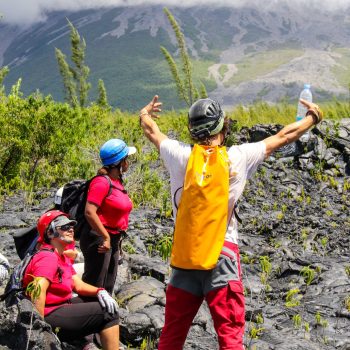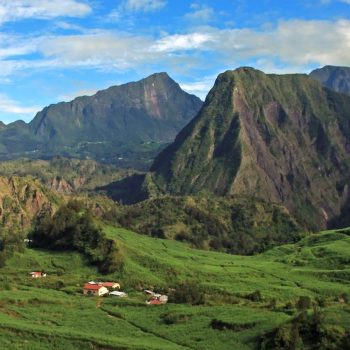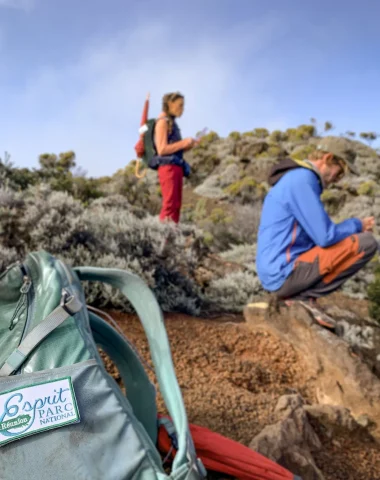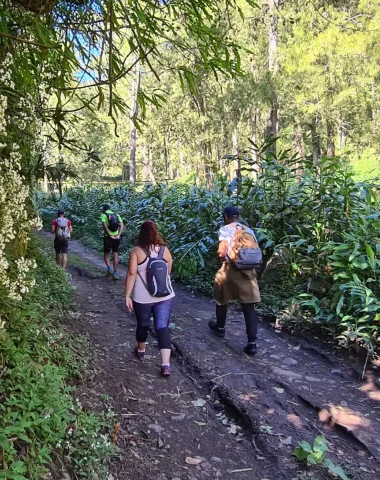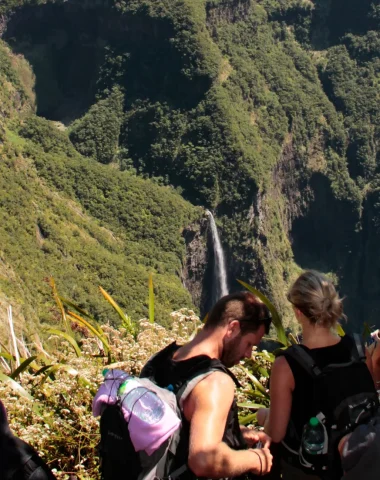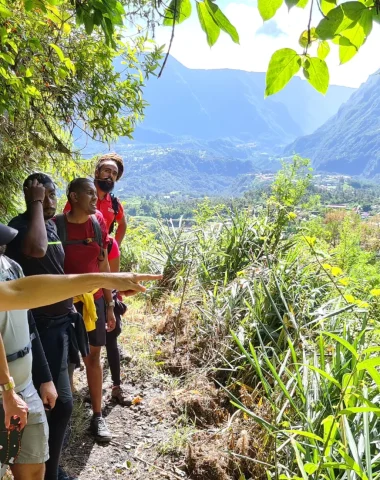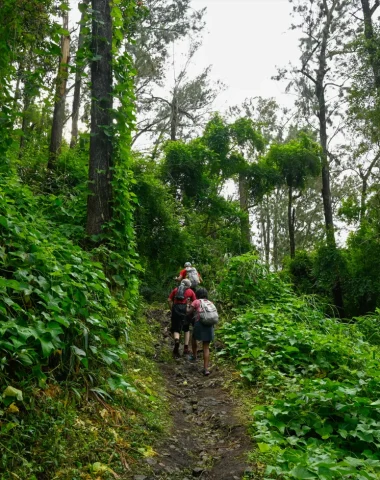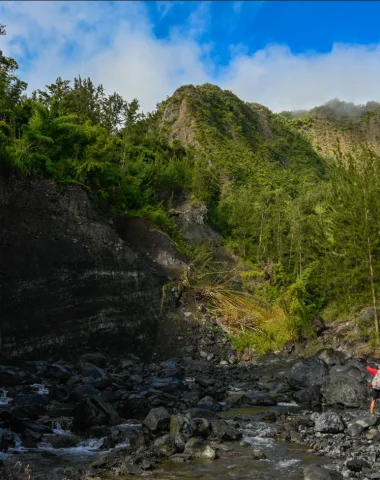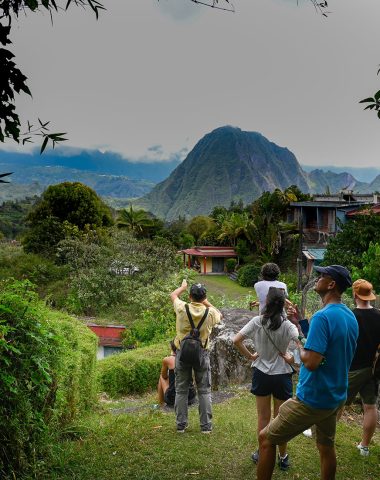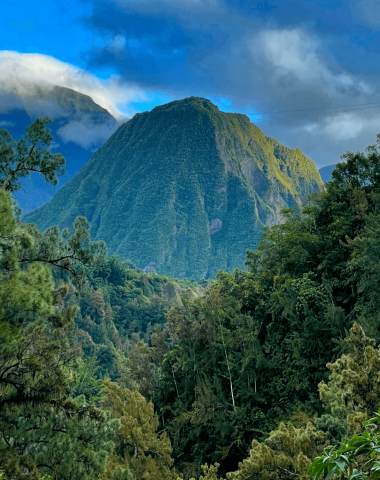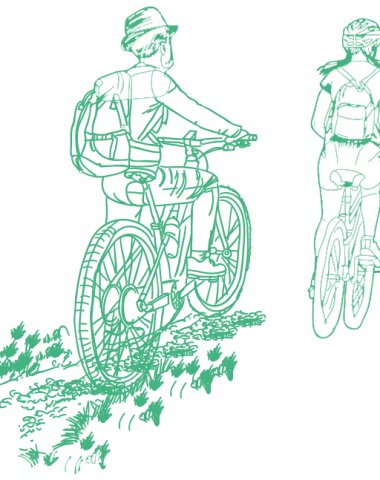L'East of Reunion Island, with its spectacular landscapes and unique biodiversity, is a paradise for hiking enthusiasts. However, it is essential that we take care of this precious environment. As an eco-responsible hiker, you can help preserve this natural beauty while enjoying its wonders. Here are 4 tips to guide you in this process.
In this section:
• Tip 1: transportation
• Tip 2: equipment
• Tip 3: responsible actions
• Our Guided Hikes
• Tip 4: local rules
• Conclusion
Tip 1 • Transportation
The first step towards eco-friendly hiking begins before you even reach your hiking location: how do you get there? The choice of your mode of transport can have a significant impact on the environment.
“How do I get to my hiking location? »
Opt for carpooling or public transportation. Not only will this help you reduce your expenses, but it will also help reduce air pollution by limiting the number of vehicles on the road. In addition, many hikes in Reunion are located near bus stops, and the “yellow coaches” have added access to the hike departures! which facilitates access by public transport.
Tip 2 • Equipment
The second crucial point of eco-friendly hiking concerns the equipment you take with you. How you prepare for your shipment can have a significant impact on the environment.
“What to bring back? »
Garbage bag for waste management
One of the fundamental principles of eco-friendly hiking is to leave nature as you found it. Carry a trash bag to collect your trash, including cigarette butts. Make sure you sort your waste properly once you return.
Portable stove
Consider using a portable stove for cooking rather than building campfires, especially in areas where they are prohibited. This reduces the risk of forest fires and ecosystem degradation. To rent or purchase hiking equipment, Lokanoo is a great local option.
Reusable tableware and utensils
To avoid producing disposable tableware waste, bring a reusable cup, plate and cutlery. Opt for sustainable materials such as stainless steel or bamboo.
Biodegradable soap
If you plan to wash your hands or face during your hike, or wash the dishes, opt for a biodegradable soap. This will reduce the impact of your use on the environment. Use it sparingly to minimize impact, as anything produced in large quantities can be detrimental to the environment. Stay away from water sources to avoid contamination.
Reusable water bottle
Avoid the use of single-use plastic bottles by bringing a reusable water bottle. Fill it at the appropriate water points along your route.
Water purification system
Instead of purchasing bottled water or carrying large quantities of water, invest in a water purification system, such as purification tablets or a water filter. This reduces the need to transport heavy loads and produce plastic waste.
Eco-friendly lighting
Use rechargeable battery or solar-powered flashlights to reduce consumption of non-recyclable batteries. Opt for light sources with low environmental impact.
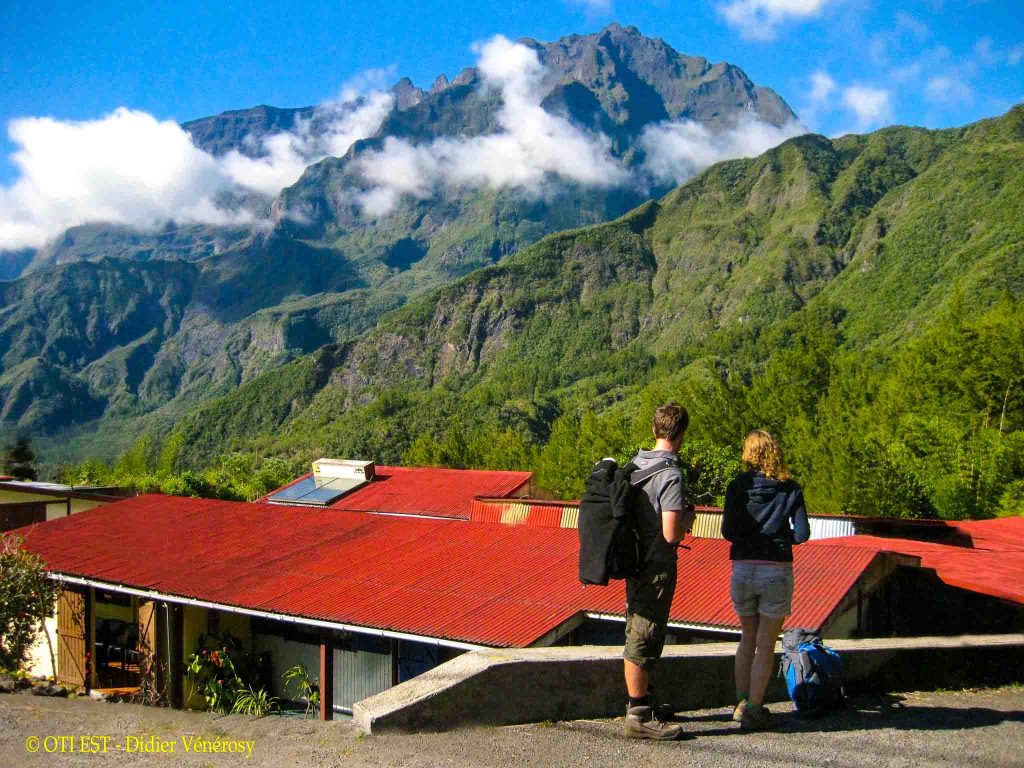
Each of these elements contributes to preserving our environment. By minimizing waste, avoiding unauthorized campfires and using biodegradable products, you help keep our natural spaces intact.
By promoting local products and supporting Reunion Island companies for your hiking equipment, you are making a valuable contribution to the local economy while reducing the carbon footprint associated with the transport of goods. A particularly recommended option for your hiking equipment needs is Lokanoo, a trusted local company that offers a full range of equipment suitable for hiking. By choosing your equipment carefully and following these tips, you will help preserve the natural beauty of Reunion Island, while supporting the sustainable development of the region through companies like Lokanoo.
Hiking in an eco-responsible way means enjoying nature while preserving it for future generations.
Tip 3 • Responsible Actions
When hiking, you also have a role to play in preserving the fauna, flora and tranquility of the places you explore.
“What good gestures should you take? »
- Respect wildlife: Observe wild animals from a safe distance without disturbing them.
- Preserve vegetation: Stay on marked trails to avoid trampling fragile vegetation.
- Protect biodiversity: Avoid picking plants, which preserves biodiversity and respects environmental regulations.
- Reduce noise: Keep the noise level to a minimum so as not to disturb local wildlife.
- Minimize your group: Keep your hiking group small to reduce your overall impact.
- Raise awareness among others: Share your eco-friendly hiking experiences to raise awareness among others and encourage similar practices.
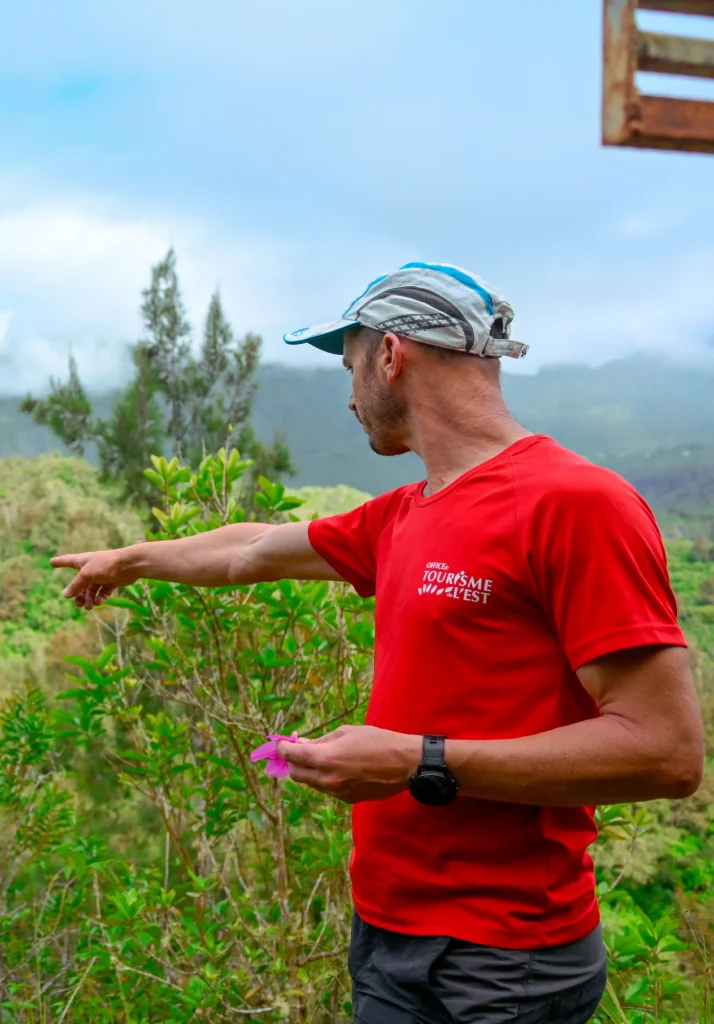
Hire a local guide : Opt for an experienced guide for several essential reasons:
- Reduced environmental impact: Experienced guides know the trails and sensitive areas, helping to avoid the deterioration of nature through unregulated exploration.
- Supporting the local economy: Hiring a local guide supports the island's economy and local communities, thereby contributing to sustainable development.
- Environmental education: Guides can educate hikers about wildlife, flora and conservation, thereby promoting environmentally friendly behaviors.
- Guaranteed Safety: Guides are trained to handle emergency situations, ensuring the safety of hikers and avoiding costly and risky rescue interventions.
- Cultural enrichment: A guide can share local knowledge, cultural stories and anecdotes, providing an enriching and environmentally friendly experience.
Discover an unforgettable eco-responsible hiking experience in the east of Reunion Island. Explore the lush nature, admire the wildlife, and breathe the fresh air. Our local guides will guide you through the preserved trails, showing you waterfalls, forests, and breathtaking panoramas. By choosing these guided hiking options, you actively contribute to the preservation of the environment and the sustainable development of Reunion Island.
Tip 4 • Local rules
Before you go hiking, find out about the climate for the coming days. It is important to also check the condition of the trails (openness and technicality). In Reunion as elsewhere, you never go hiking alone and you inform those around you of the route you are going to take. If there is a problem, this will be a starting point for research. Finally, and this is the most important, you never stray from the marked trails if you are not accompanied by a local guide!
To find this information, you can rely on your tourist office, the Réunion National Park house located in La Plaine-des-Palmistes, government websites (Prefecture or ONF), hiking guides and tourist guides. .
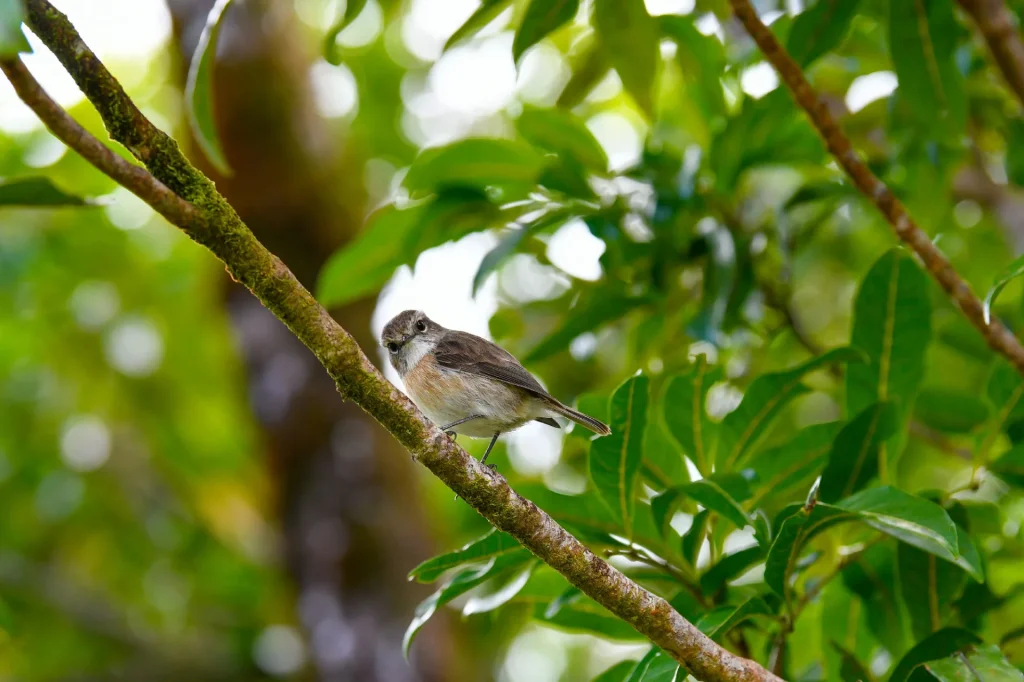
En conclusion
In conclusion, becoming an eco-responsible hiker on Reunion Island is a process that requires preparation and awareness of the importance of preserving this magnificent natural environment. By following these four tips, you can help protect the island's natural beauty while still enjoying your outdoor adventures. Your commitment to environmental preservation will serve to preserve these natural treasures for future generations. So, get ready to go on an eco-responsible hike and discover the splendor of Reunion Island.
Themes



